Conservation of Effort
Art on easymode
When asked about art, most people seem to believe there's a relationship between putting in a lot of effort and getting a beautiful result. People love the idea that the Mona Lisa supposedly took 16 years to paint1.
Conversely, It's possible to throw paint splatters at a canvas and produce something beautiful within seconds. Many people instinctively hate this, they feel that it cannot be real art if it was easy to make. Discussions about “real” art are typically stupid but I'm not here to argue about the definition of art (at least not today).
In the example at hand, I would contend that many people across history have splattered paint on a canvas and only a fraction of those have gained any recognition. The interesting question, I think, is why?
In a word: taste. Artists have to decide which of their works they actually like and which direction they want to move in next. Even if the work itself lacks intention in creation, it still runs through the filter of the artist's taste. The artist had to (at least subconsciously) pick a canvas, a paint to splatter and the movement of their body in doing so and decide afterwards that it was worth keeping. In my observation, the degree to which an artist's taste resonates with an audience is strongly correlated to their popularity and success (if controlling for reach & distribution). The kicker is that it seems taste cannot be faked. It is the aggregate of the artist's being: their genes, cells, memories, thoughts, feelings and, of course, their own aesthetic preferences in media.
The bad news is that, in practice, most people do not cultivate sufficient taste to make a living from it, even those who dream of being an artist. The good news is that you're automatically refining your taste in every moment and the more you explore the faster it happens.
Interestingly, creative effort behind great works seems to be roughly conserved no matter how you spend it. Either you can labour over a given artwork for many years, or you can spend that time exploring and developing your taste and create your art in a few seconds. Daily sketches (genuary, inktober) are a well-loved practice method and they train taste just as much as technique. Taste is the invisible XP bar that creatives are always filling up. As a result, when we're presented with tools that reduce the effort to make art, it frees all that effort up for gaining more taste XP.
Now, to the elephant in the room. Like everyone and their dog, I've been playing with Stable Diffusion and ChatGPT lately, but I think I have a more measured take than most. Will this change the world? Yes, somewhat. Will it replace great artists? Not like this. Will it replace Fiverr illustrators and copywriters? It already might have.
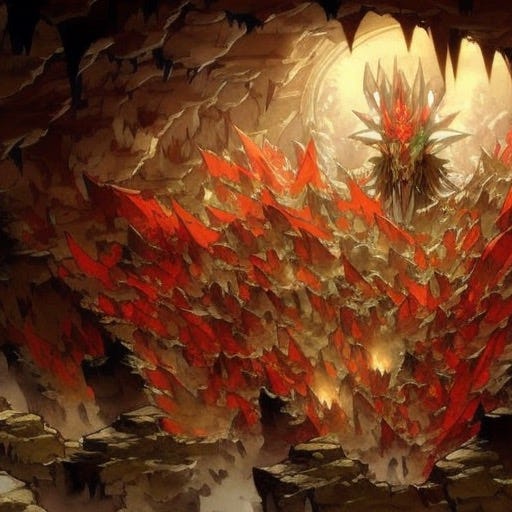
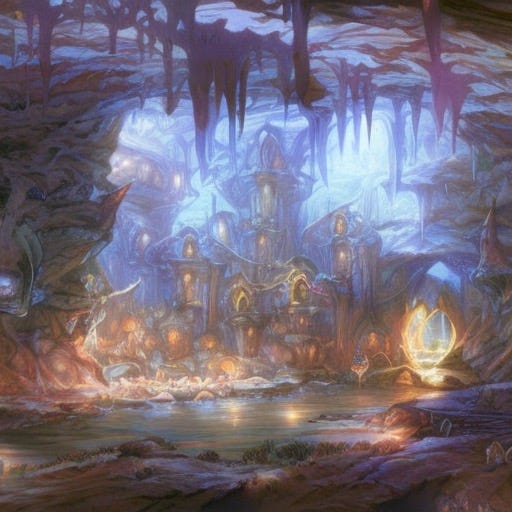
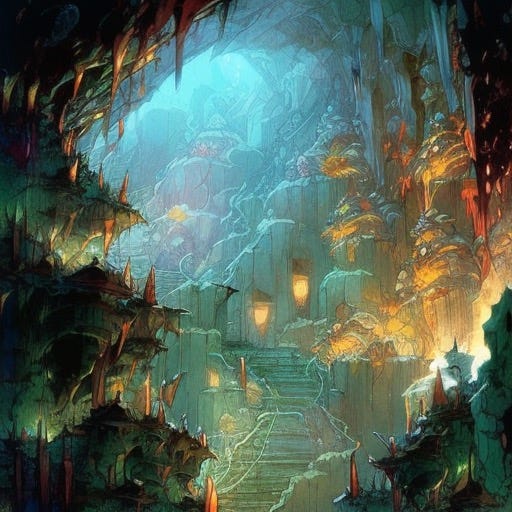
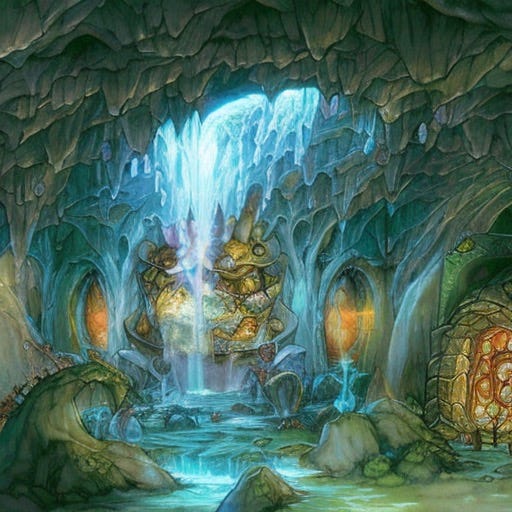
Observing the AI discussion playing out in real-time has been fascinating. Tech-influencers everywhere are claiming this is the new world order while artists are gnashing their teeth and claiming that all AI generated art is disgusting and illegal. In typical internet fashion, these perspectives are both pointing at something important in a supremely hyperbolic fashion.
I’ve even seen new insults coined in the battle, with AI fans claiming that if your art style is easily generated by a model then you were too keyword-core in the first place to deserve recognition.
Both groups can be incredibly reductive in their thinking, to say the least. Stable Diffusion and Midjourney can produce stunning images in the right hands and that point is crucial. The original images these models were trained on were dependent on the original artists' taste and the generated image is a result of the prompt-craft and taste of the human at the keyboard.
Rather than a world without human artists, I expect we're on track for a world where human art is only valuable when the author has put in the years to develop an immaculate sense of personal taste2. Most laypeople can't think of an interesting prompt in the first place, let alone the keyword soup required for a deliberate style. There is a skill to navigating latent space (especially via the clunky prompting interfaces of today) and those with taste who cultivate this skill will be very well positioned in coming years. More advanced models will provide us with more control of the output, and to wield that control usefully will probably require LVL 100 taste3.
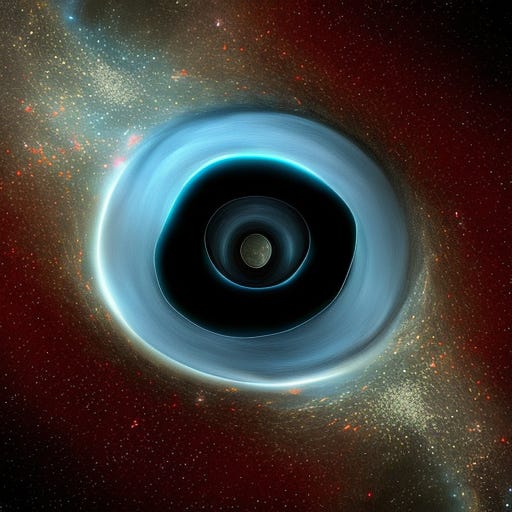
Today, AI generated art reminds me of clip art and stock photos. There's a distinct "close enough-ness" to the output and a lack of personality to most examples. Technological progress will likely improve this but I remain skeptical it will close the gap any time soon. People with underdeveloped taste may accidentally create beautiful works using AI, but they won’t do it consistently over time.
My personal theory of art™️ is that it's not actually about the media at all. It's about the connection from the authors to the consumers. Every artwork is a crystallisation of those who made it and you can feel this in great works. Sidenote: I believe this is why blockbuster games, music and movies can seem soulless. The signature of each creator is lost in the noise of all the other people involved. You're getting the average of several thousand people's taste which approximates the average taste of the population, which in turn is why Marvel movies and pop music are popular. Not because they’re “objectively good” but because they’re easy to like4.
So, here's my big take: great works of art have a clear personality to them. Here's my second take: AI currently cannot produce a clear personality without guidance from an expert human.
This has all become particularly dear to me as I've grown more attracted to procedural generation in my games. I explained last post how leaving space for the user/player is my new favourite design philosophy but I left out part of the reason why: I'm not really that good at making content by hand. Don't get me wrong, I've spent thousands of hours drawing, writing and creating levels but I don't love it the way I love making systems that surprise me. I imagine this has a lot to do with my lifelong focus on mathematics and programming, whenever I encounter a manual laborious task my first instinct is to (at least partially) automate it.
When making The Thin Silence I couldn't automate anything. Every animation frame, every tile in every level and each second of cutscene was manually planned and implemented. Sure, the gameplay systems are programmatic, but the experience of making the game was like writing a book. As a result, that game feels haunted by a younger version of both Ricky and myself, every single decision was filtered through our personal preferences.
In contrast, working on WizardChess and diving into a highly systems-driven, procedurally-generated, randomised design space is… different. And yet, the choice of the rules, the parameters, the algorithms and the progression is still all filtered through our personal taste. You can't really get away from it, if you're making decisions then you're encoding your taste into the work at hand!
I increasingly see my work in digital art as crafting the container of experience, leaving the specifics up to the viewer. I want to make games that explore modding, user-created content, AI generation, procedural geometry and animation etc. and show that, with taste, it still retains the humanness that we have always craved from our art. Personally, I believe great works are still possible in the post-scarcity era of art.
As these radical new tools emerge I find myself using the same strategy as ever: keep learning, keep developing my taste and keep pushing the boundaries.
Until next time,
✌️ Ben
Stuff I’ve been thinking about
📄 Dowsing is a technology for intuition amplification
📄 dancing with constraints, pt. 1
📄 With Text-to-Code AI, The Early Dream of Computation is Back
there are many reasons this isn't accurate, but it's a common belief
I would love to see AI models start to incorporate a deeper sense of aesthetic, based on modelling human brains and, in turn, taste
Maybe they’ll make an in-app purchase to skip the grind in the future patch ;)
There is a commercial danger to developing your taste too far, it will begin to alienate those with less developed taste and effectively narrow your audience. For most creators this is not a conscious choice, we’re compelling to develop our taste because of the emotional connection we feel to the work. I don’t think there’s a clear lesson here, but it does explain why we have cult-classics.




